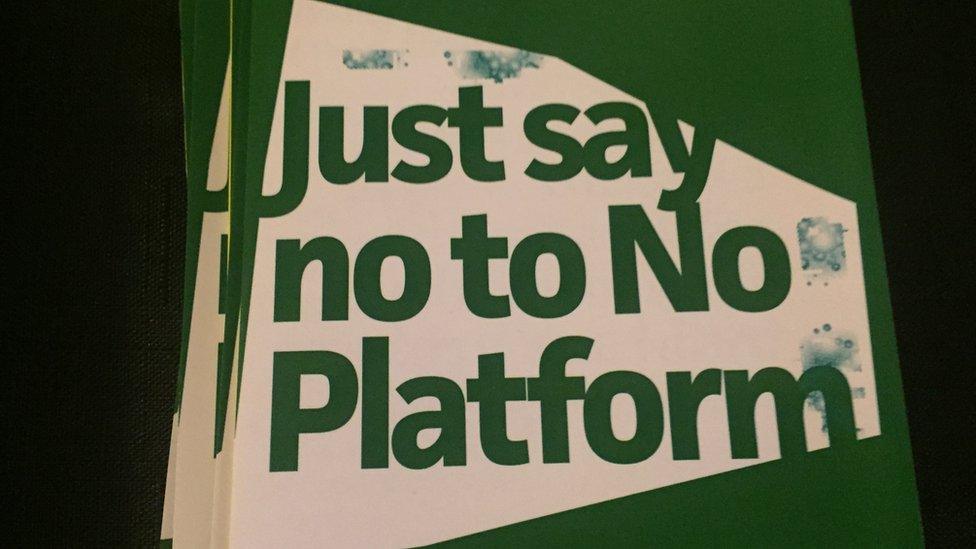Universities could face fines over free speech curbs
- Published
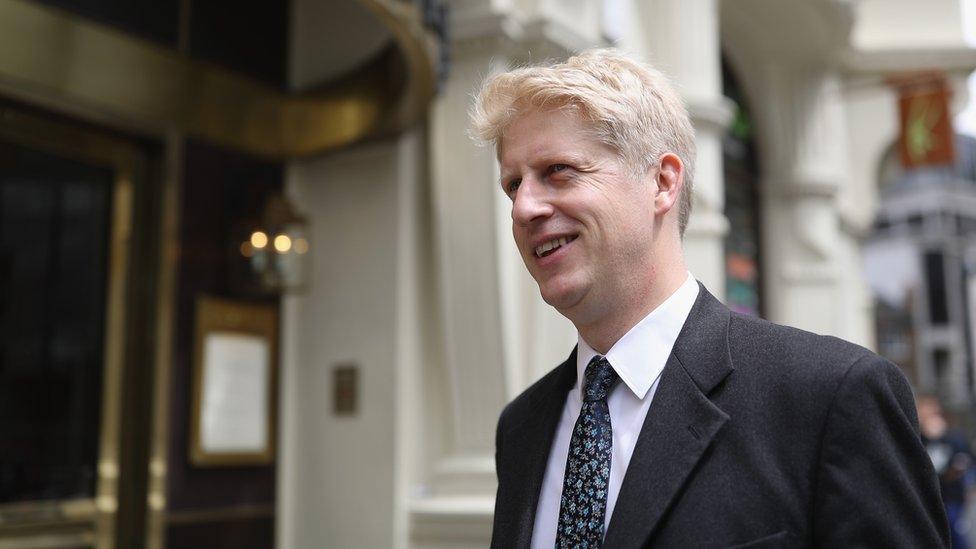
Universities must protect free speech and "open minds, not close them", the universities minister has said in a speech in Birmingham.
Jo Johnson said "no-platforming", the policy of banning controversial speakers, is stifling debate.
From next April, a new regulator - the Office for Students - will have the power to fine universities that fail to uphold free speech.
Universities UK has said it will not allow legitimate debate to be stifled.
In his speech, Mr Johnson said: "In universities in America and worryingly in the UK, we have seen examples of groups seeking to stifle those who do not agree with them.
"We must not allow this to happen. Young people should have the resilience and confidence to challenge controversial opinions and take part in open, frank and rigorous discussions."

What are 'no-platforming' and 'safe space' policies?
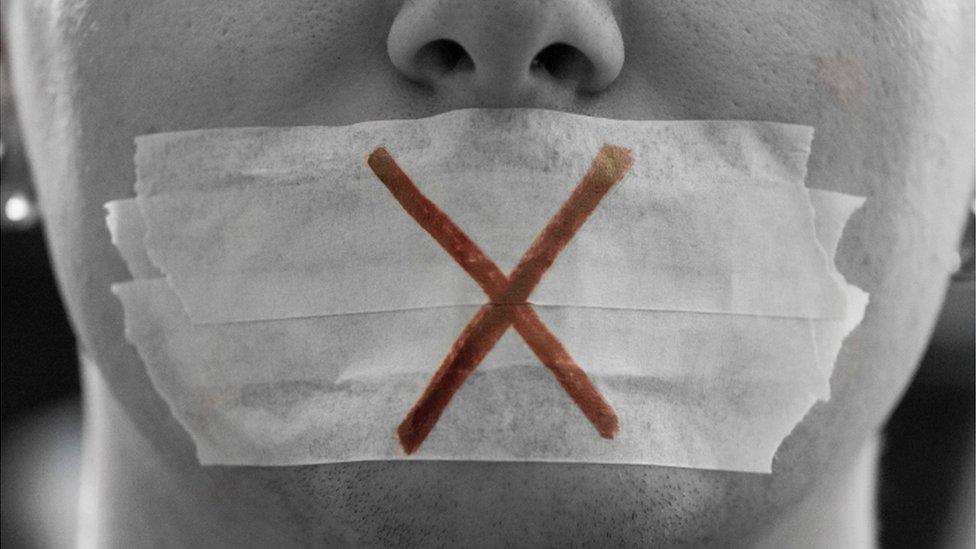
"No-platforming" is the practice of banning certain groups from taking part in a debate if their views are considered to be offensive or unacceptable.
"Safe space" policies are intended to protect students from views and language they find offensive, including discrimination.
In 2016, nearly two-thirds of university students believed the National Union of Students was right to have a "no-platform" policy.
That approach means people or groups on a banned list for holding racist or fascist views are not given a platform to speak on student union premises.
The NUS official no-platform list contains six groups including the BNP and Al-Muhajiroun, but individual unions and student groups can decide their own.
At Canterbury Christ Church University, an NUS representative refused to share a platform with LGBT activist Peter Tatchell, whom she regarded as having been racist and "transphobic".

Mr Johnson was speaking at the Limmud Festival, which celebrates Jewish learning and culture.
In his speech, Mr Johnson said that the Office for Students will ensure universities promote "freedom of speech within the law".
Proposals for the new body, which are open for consultation, could see universities being fined, suspended or deregistered, if they do not protect free speech within the law.
Allow X content?
This article contains content provided by X. We ask for your permission before anything is loaded, as they may be using cookies and other technologies. You may want to read X’s cookie policy, external and privacy policy, external before accepting. To view this content choose ‘accept and continue’.
Universities UK chief executive Alistair Jarvis said: "There is already a legal duty on the higher education sector to secure free speech within the law and universities take these responsibilities very seriously."
He added that institutions also had a duty of care to the "safety of students and staff".
Sir Anthony Seldon, the vice-chancellor of the University of Buckingham, agrees with Mr Johnson's plan, saying it is a "duty" of universities to "open up dialogue".
But he says it is "degrading" that the minister has had to step in.
"The universities themselves autonomously didn't get their eggs in order, so the universities minister is having to tell us what to do," he told the BBC News Channel.
"I think that really is quite a shame for us, and almost rather degrading that we're in that position."
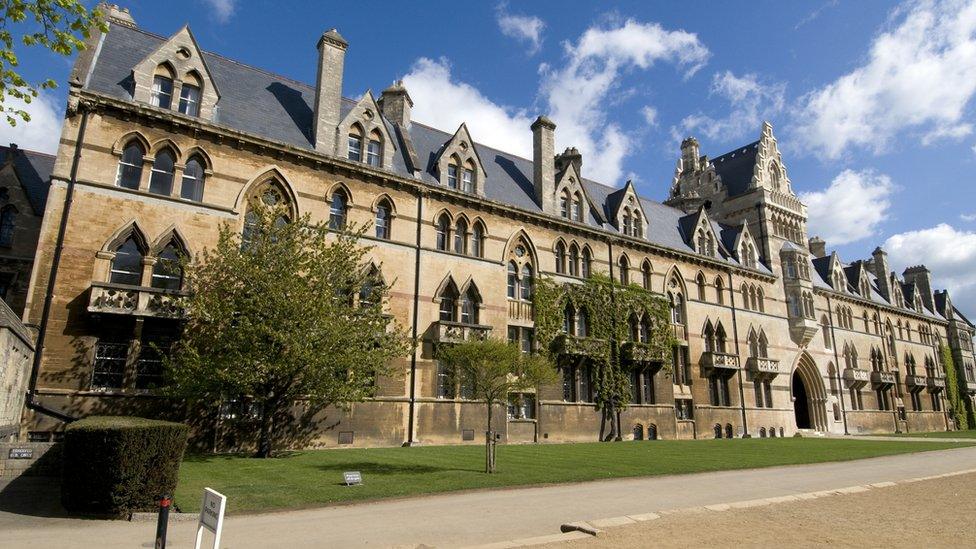
The study on the ethics of the British Empire is taking place at Christ Church, Oxford
Mr Johnson's speech comes as one of the UK's oldest universities has been criticised by academics for a project on the ethics of the British Empire.
Up to 60 Oxford University academics have signed a letter in opposition to "the agenda" of the project.
The programme is led by Prof Nigel Biggar, who claimed in a recent article in The Times,, external there are aspects of empire Britain can be proud of.
A university spokesperson said "arguments and differing approaches" are to be expected, and defended Prof Biggar as an "entirely suitable" person to lead the "valid evidence-led academic" project.
- Published20 December 2017
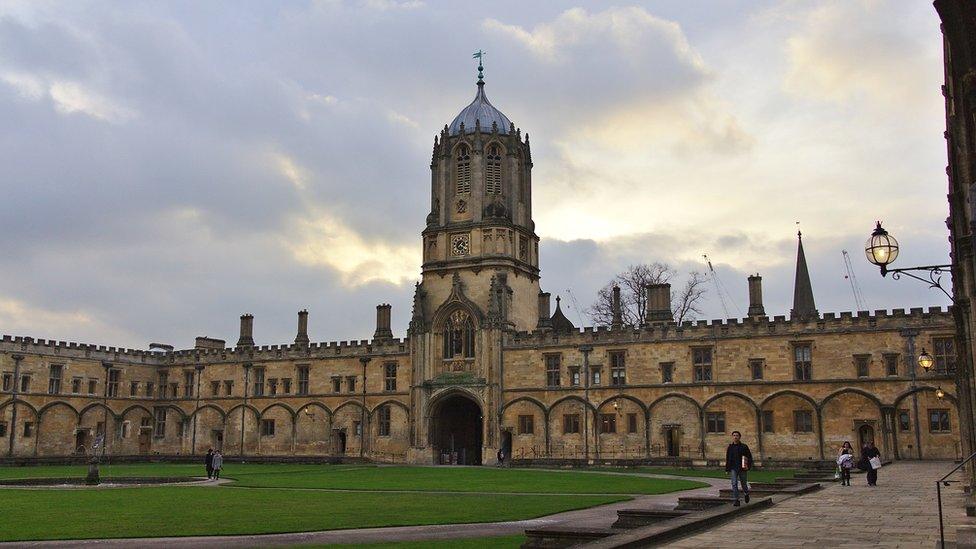
- Published25 April 2016
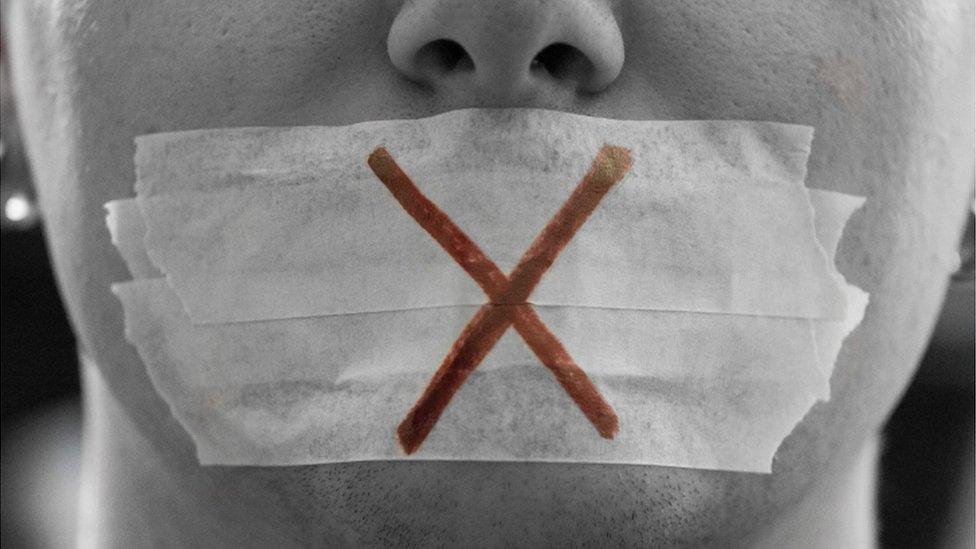
- Published26 February 2016
